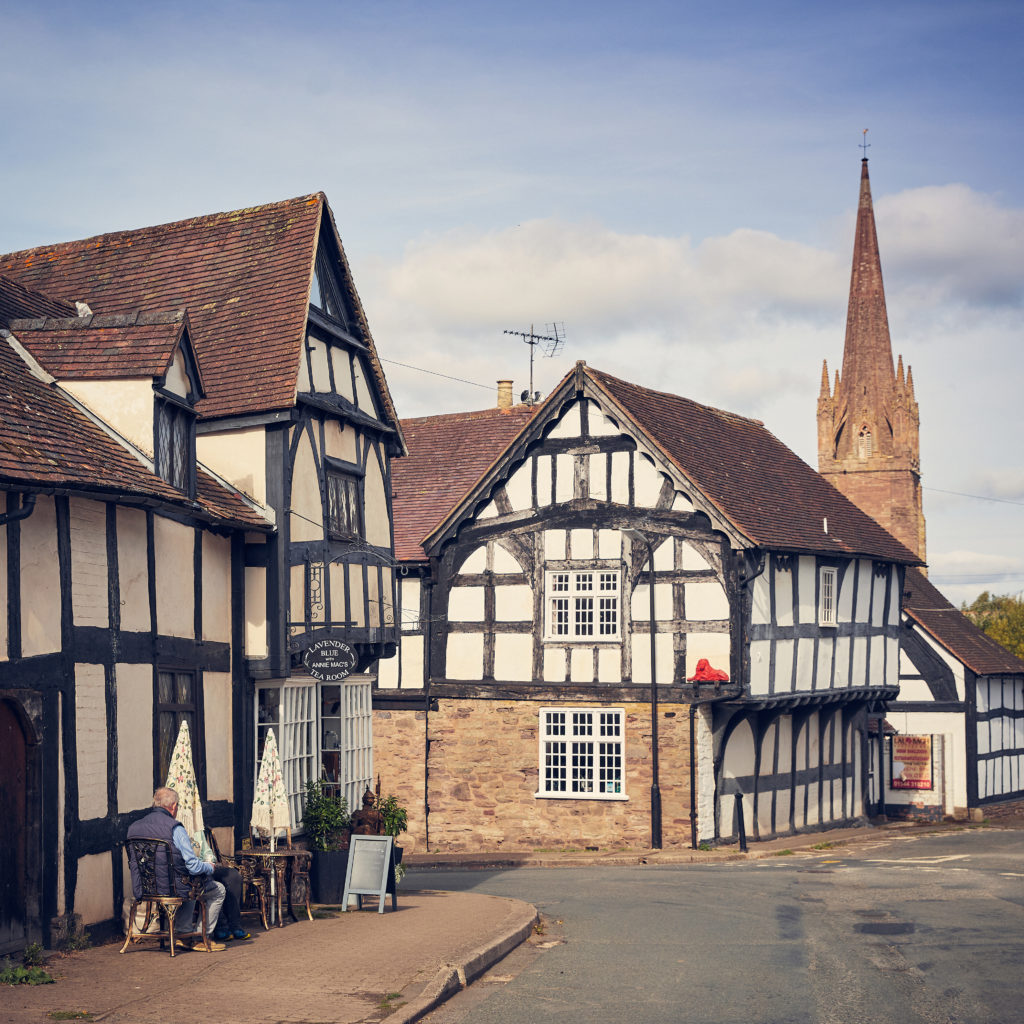Our Teams
Corporate Services have a number of dedicated teams covering a wide range of disciplines. Please read more information about each team below. We are dedicated to creating an organisational culture that enables our people to flourish. As part of our transformation programme, we aim to offer an environment where our workforce feel they can thrive, belong, and succeed.

Electoral Services
The Electoral Services team is the first point of contact for organising the delivery of elections, polls and referenda for Herefordshire, both for local and national levels. Electoral Services also creates and maintains the Register of Electors (electoral roll) monthly and conducts a yearly annual canvass providing daily assistance to ensure members of the public are registered to vote and their details are correct and up to date enabling them to vote and obtain credit.
Electoral Services also works alongside organisations such as Cabinet Office, Electoral Commission, Boundary Commission for England and Association of Electoral Administrators to carry out specific functions like legislation changes, Boundary changes, Community Governance Reviews, Polling District, Places and Polling Stations reviews for which the Electoral Services are statutorily responsible.
Electoral Services are in regular contact with Parish Councils, Councillors, Political Parties and candidates to keep everyone informed of legislation changes and statutory functions and services Electoral Services provide. The experienced electoral administrators will provide comprehensive information, advice and guidance to everyone to enable and ensure all enquiries are responded to in a timely and appropriate manner.

Information Governance
Information Governance (IG) is the framework for handling information in a secure and confidential manner that allows organisations and individuals to manage personal and sensitive information legally, securely, efficiently and effectively in order to deliver the best possible services. Information is one of Herefordshire Council’s most important assets and, just like our staff, our buildings and our equipment, needs to be carefully managed and looked after.
The Information Governance team is responsible for ensuring that we deliver our strategy for meeting all of our regulatory and business requirements around managing information.
IG applies to, and impacts on, everyone working for, or on behalf of, Herefordshire Council. Good information governance means that information will be:
· Available when we need it.
· Of sufficient quality to inform the decisions that we take and to help understand the decisions that we have taken.
· Handled securely to make sure that access is only granted to individuals with a lawful entitlement.
IG brings together all of the legal requirements, standards and best practice (including policies and procedures, management and reporting arrangements, processes and controls, and training) that apply to the handling of personal and sensitive information, including but not limited to:
· Caldicott Principles
· Code of Practice on confidential information
· Common Law Duty of Confidentiality
· Data Protection legislation – UK Data Protection Act 2018 and the UK General Data Protection Regulation 2016 (GDPR)
· Data Security and Protection Toolkit (DSPT)
· Freedom of Information Act 2000
· Environmental Information Regulations 2004

Legal Services
Legal services offers a full range of public law advice and guidance to Herefordshire Council.
This includes legal advice and guidance on:
Adult Social Care
We advise on all aspects of adult social care law, including Councils’ responsibilities to the elderly, vulnerable adults and those with mental illness.
Our advice includes advising on challenges to decisions on eligibility for services, assessments and care plans, advice on community care and human rights assessments, court applications under s29 Mental Health Act, and applications to the Court of Protection and the High Court.
Child Care
Our team of experienced child care lawyers deals with all aspects of child protection, adoption and fostering.
Contracts & Procurement
Our contract lawyers advise on all aspects of contract law including procurement, competition, tendering, contracts for goods and services, contractual disputes and negotiations.
Our highly capable lawyers support the full range of local authority procurement and commercial matters, including facilitating the delivery of major corporate projects. We also advise on alternative delivery models such as the formation of trading companies, partnerships and joint venture arrangements, including the establishment of social enterprises, and shared services arrangements between public bodies.
Education
We provide advice and assistance to our education department on a wide range of education law issues. This includes legal advice on admissions, exclusions, reorganisations, special educational needs, school improvement, standards, strategic planning and education welfare.
Employment
We provide legal advice on a range of employment matters and legal representation in the Employment Tribunal and Employment Appeal Tribunal.
We also advise on operational employment matters such as disciplinary and grievance issues, unfair dismissal, redundancy and reorganisation, TUPE, whistleblowing, industrial relations and negotiating and drafting settlement agreements.
Governance
We provide advice to officers and members of the Council on matters relating to governance, ethics and administration that affect public bodies. This includes local authority powers and duties, conducting investigations into complaints against members, and advising new members on their roles and responsibilities.
We offer advice on constitutional issues such as interpretation of the constitution, decision making, delegations, and the drafting and updating of constitutional documents, codes and protocols.
We also attend certain committee meetings and provide legal advice, checking reports prior to inclusion on Council meeting agendas, and advising on decision making procedures and reporting requirements.
We advise on other regulatory and compliance issues such as advice on corporate standards and ethical governance, public law including judicial review, and regulation of the Investigatory Powers Act.
Civil Litigation
We advise and represent clients in a wide range of litigation matters, including commercial and contractual disputes, injunctions and judicial reviews.
Planning
Our team provides full support for Councils planning functions, including advice to Planning Committees and acting on behalf of Councils in enforcement matters and public inquiries.
We offer a wide range of services covering Planning and Regeneration, Highways and Environmental Law. This includes Section 106 planning agreements, planning inquiries and committees, enforcement powers, and defending judicial proceedings challenging the grant of planning permission. We also deal with Highways matters such as the adoption, stopping up and diversion of highways.
Property
We advise on a wide range of property matters from simple leases to complex development agreements, partnership agreements and academy/free school land arrangements.
Our work includes for both landlord and tenant, such as commercial leases, secure and non-secure residential tenancies including service tenancies and temporary arrangements for homeless people. We deal with complex leasehold arrangements, deeds of variation, licenses to assign/sub-let for alterations, rent deposit and bond arrangements. We deal with operational leases and licenses for schools, as well as allotment tenancies, agricultural licenses and farm business tenancies.
We work on disposals, acquisitions and other transactional work such as development agreements, the right to buy, grants of licenses, nomination agreements and housing stock transfer.
Prosecutions
We prosecute both individuals and businesses for criminal offences including benefit fraud, fly tipping, noise pollution, licensing, health and safety, food hygiene and planning contraventions.
We are able to provide advice and assistance for criminal investigations and litigate cases in both the Magistrates’ and Crown Courts.
We undertake all aspects of regulatory crime, including health and safety at work, food safety and hygiene, pollution, enviro-crime, private sector housing, planning and listed buildings, and trading standards and licensing. We also deal with fraud – such as housing benefit, council tax, tenancy and housing, corporate fraud and applications under the proceeds of crime legislation.

HR & Organisational Development
The council’s HR and OD function delivers four key areas of activity; employee relations, organisational development, health and safety and policy and data.
Employee relations refers to the HR work which is undertaken working closely with managers and services. The Business partnering team is led by Debbie Thompson and the team’s work includes managing casework, supporting change programmes and workforce planning activities. A key area of work for the employee relations side of HR has been supporting the improvement work in children’s with particular emphasis on social work recruitment and retention.
The learning and OD function is managed by Rachel Jones and leads on council wide initiatives which aim to create the best possible working environment for staff to be able to succeed and deliver the council’s strategic aims. The team focuses on areas such as leadership, talent management, learning and development, culture, staff engagement equality diversity and inclusion and wellbeing.
The health and safety team comprises two advisers and is led by Chris Reeves who is the Team Manager. The team provides a critical service, ensuring the council is a safe place for people to work.
We also have a small but important team that works on our policy framework, HR data, guidance tools for managers and HR transactional activities. This team is led by Leanne Edwards and the admin service is delivered by our brilliant delivery partner, Hoople Group Ltd.

Property Services and Facilities Management
Our team consists of 4 separate elements: Estates, Commercial, Building Maintenance and Facilities Management. Each team has a different specialism and role to play.
The team is led by the Strategic Assets Delivery Director, Sarah Jowett. Sarah has over 30 years of local government property experience and is keen to build a strong, focused team who support one another and enjoy their work. The service is exceptionally busy with extremely varied and interesting work across the board, covering all aspects of Council activity and relationships with all sectors of Herefordshire society.
Estates: consists of valuation, acquisitions, disposals and leasing. The section also ensures accurate data is maintained on the Council’s interests and develops strategy and process.
Commercial: this section manages the commercial and retail estate to optimise income and to operate as a good landlord.
Building Maintenance: covers both reactive and planned maintenance programmes as well as compliance. They hold the main Corporate Landlord budget and ensure the operation of the Council’s estate (cleaning, grounds, etc).
Facilities Management: support with the on-site operation and day to day activity of the corporate offices. This includes post, ID badges, H&S checks, porterage and supporting meetings.
Overall the team manage risk in Council dealings and advise officers and members alike on property matters, working closely with all other Council services, especially Legal Services and Finance.

Democratic Services
The Democratic Services team is responsible for all 53 ward members and administering the formal decision-making process of the council. Our principal role is to ensure that decisions taken at are open, transparent, accountable and legally compliant with legislation and constitutional provisions.
We are highly visible service that all councillors have dealings with, both in regard to committees we service and the support we provide on a one to one basis. We have 16 public committees in total and we administer approximately 110 to 120 public committee’s per year. The Service has a team of on-site governance officers who advise and support those who chair Committees and Committee Members on matters directly relating to the management of committee meetings, including:
· Ensuring committee meetings meet corporate standards, standing orders and all relevant legal procedures and processes;
· Manage the Forward Plan of executive and non-executive;
· Attending meetings to minute and provide advice on procedural issues;
· An effective Scrutiny function by providing advice, briefings, supporting Committee meetings, formalising work programmes, task and finish groups and an annual report presented to Council;
· Review, deliver and facilitate the Council’s Member Development Strategy, mandatory and induction training and a programme of member briefings.
The team also administers approximately 80 school admission and exclusion appeals for local maintained and faith based schools and academies. We do this accordance with the School Admission Appeals Code under the School Standards and Framework Act 1998.

Registration Service
The Registration Service is a public facing service with statutory responsibility for registering births, deaths, marriages and civil partnerships that take place within Herefordshire; meaning the team deal with the general public at significant life events both happy and sad. The service is also responsible for the secure storage and preservation of the birth, death and marriage registers and for producing copy certificates.
The Ceremony Team is responsible for attending and conducting civil ceremonies that take place both in the Registration Office and at venues throughout the county. They also perform other ceremonies including citizenship, naming, and renewal of vows. This team generates a significant amount of income for the council.
The service works in partnership with a number of external agencies including Wye Valley Trust, GP practices, hospices, nursing homes, approved wedding venues and the General Register Office.

Coroners Service
The Coroner’s role is to investigate and record the causes and circumstances of all sudden deaths in Herefordshire where the cause is not known, violent, unnatural or occurred when the deceased was in custody. The coroner is an independent judicial officer. Coroners Officers are provided by the police service and the council employs Coroners Clerks to provide administrative support to the Coroner. Of the 2,000 or so deaths in the county each year approximately half are referred to the Coroner for consideration, some will necessitate a post mortem. Of the cases referred, the Coroner will typically open an inquest in 100+ cases each year. The Coroner endeavours to establish how the deceased died. Often this will be useful in understanding whether safe procedures or practices have been followed or can be improved.
The Coroner meets regularly with representatives from business, the police and hospitals to discuss ways in which deaths can be prevented or their number reduced, frequently using the knowledge gained from the inquest process. This leads to the adoption of new practices both within organisations and in our daily lives.
